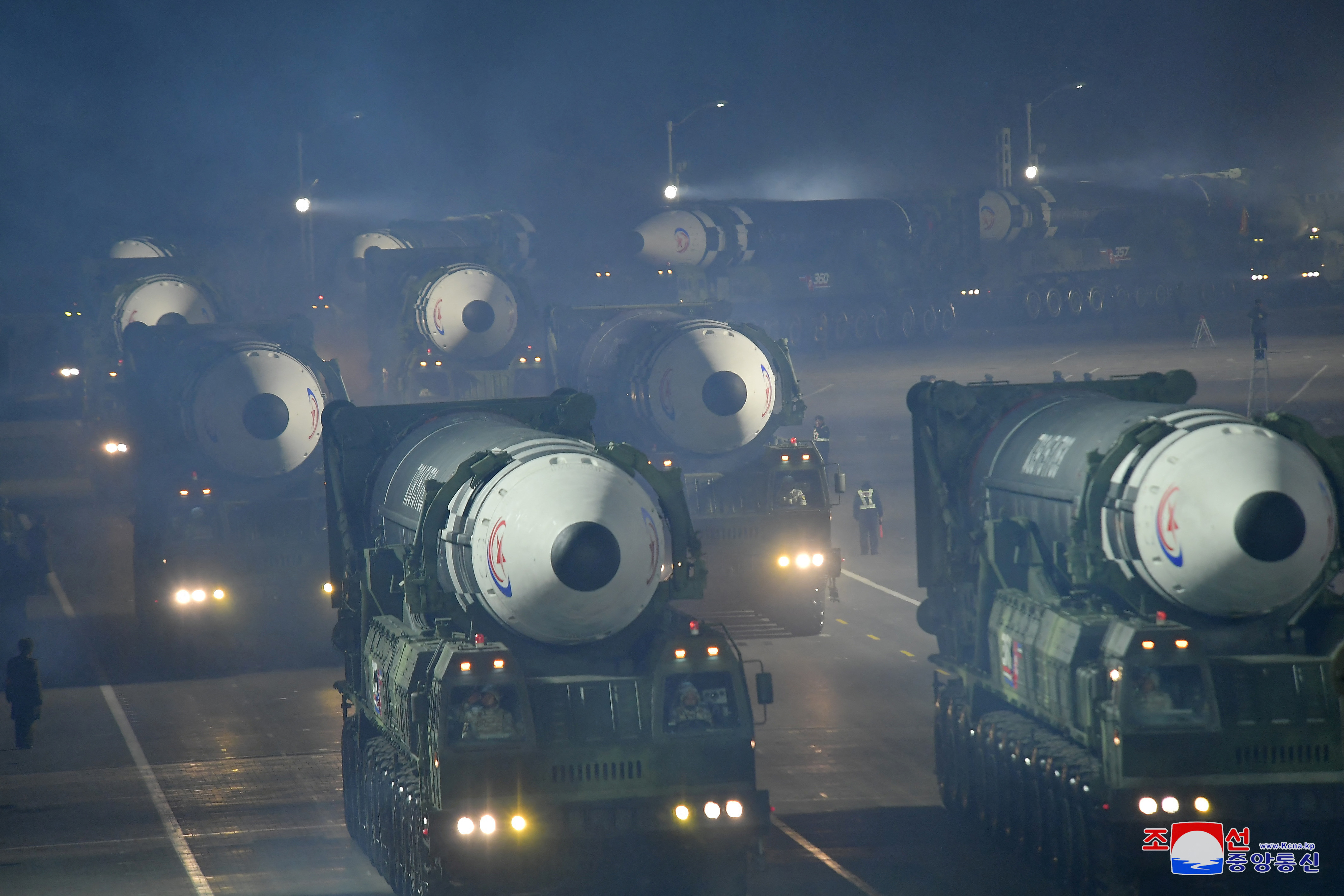
North Korea has launched what could be a “new type” of ballistic missile that landed in the waters between the Korean Peninsula and Japan, prompting Tokyo to lodge a “strong protest” after fears the weapon might land in or near its northern island of Hokkaido led to an evacuation order.
South Korea’s Joint Chiefs of Staff (JCS) said the North Korean missile was launched at a lofted angle on Thursday from a location near the capital Pyongyang at 7:23am (22:23 GMT on Wednesday).
The missile, suspected to be intermediate-range or longer, flew for about 1,000km (621 miles) in the direction of the waters between the Korean Peninsula and Japan, before falling into the sea, the JCS added, describing the launch as a “grave, provocative act”.
Japan also said the missile landed in the water but did not immediately give a more precise landing location.
“The intelligence authorities of South Korea and the United States are conducting a comprehensive analysis on its detailed specifications,” the JCS said in a text message sent to reporters.
South Korean broadcaster YTN, citing a military official, said the test launch could have involved a new type of weapon displayed at recent military parades, and that it was not ruling out the possibility that the projectile was a solid-fuel missile. Solid fuel technology makes rockets easier to transport and faster to launch than liquid-fuelled ones.

A defence official said Tokyo had launched a “strong protest” over North Korea’s actions after it lifted an earlier Hokkaido evacuation order amid concern the missile was heading in the island’s direction. Japan issued a similar evacuation order last October when North Korea fired an intermediate-range missile over the country. That weapon splashed down in the Pacific Ocean.
Following Thursday’s launch, Seoul convened an emergency meeting of its National Security Council, which also condemned the North Korean test.
In Washington, DC, the White House also criticised the launch which it said was a “brazen violation of multiple UN Security Council resolutions” and urged countries to condemn Pyongyang’s test activities in the strongest terms.
‘Not answering the phone’
North Korea carried out a record number of weapons tests in 2022 and has kept up the pace of development this year, framing its activity as a response to joint military drills between the US and South Korea that it claims are a rehearsal for invasion. Washington and Seoul say their drills are defensive in nature and arranged as a response to North Korea’s growing nuclear and missile threats.
South Korean officials say North Korea has not been responding to their calls on a set of cross-border inter-Korean hotlines, designed to prevent accidental clashes, for about a week.
Leif-Eric Easley, a professor at Ewha University in Seoul, said the situation on the peninsula was becoming increasingly unpredictable.
“Pyongyang’s provocations continue past its protest of U.S.-South Korea defense exercises because Kim Jong-un hasn’t finished demonstrating his nuclear delivery capabilities yet,” Easley said in an email. “However, with the North Koreans literally not answering the phone, the lack of hotlines and diplomacy increases the risk of unintended escalation.”
In a sign of heightened tensions, the North Korean official news agency KCNA quoted leader Kim Jong Un on Wednesday calling to strengthen his country’s military in a “more practical and offensive manner”.
Pyongyang’s meeting of the Central Military Commission was held on Monday in reaction to “the escalating moves of the US imperialists and the South Korean puppet traitors to unleash a war of aggression”, according to the KCNA.
The news agency explained that military leaders there discussed “practical matters and measures for machinery to prepare various military action proposals” that the “enemy” could not counteract.
Denuclearisation talks have been stalled since 2019 when a second high-profile summit between Kim and then US President Donald Trump collapsed.
On Thursday, the White House urged North Korea to return to the table.
“The door has not closed on diplomacy, but Pyongyang must immediately cease its destabilizing actions and instead choose diplomatic engagement,” it said.







